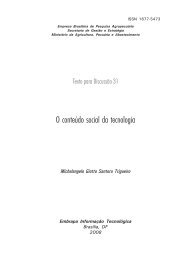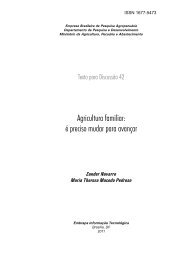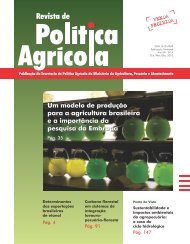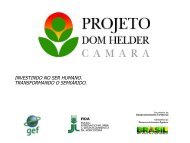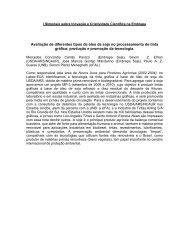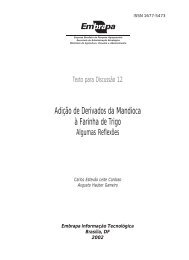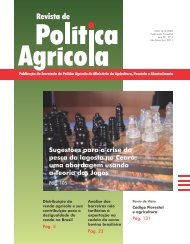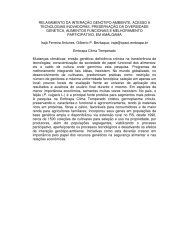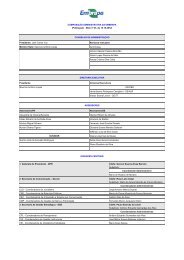Ministry of Agriculture, Livestock and Food Supply - Embrapa
Ministry of Agriculture, Livestock and Food Supply - Embrapa
Ministry of Agriculture, Livestock and Food Supply - Embrapa
You also want an ePaper? Increase the reach of your titles
YUMPU automatically turns print PDFs into web optimized ePapers that Google loves.
Figure 11. Biodiesel production by transesterification.<br />
that would enable a precise determination <strong>of</strong> their potential. This will take some<br />
time since agricultural research in Brazil, which focuses primarily on the<br />
botanical <strong>and</strong> agronomic cycles, has not yet made much progress.<br />
Among the crops available for biodiesel production (Table 11) special<br />
mention should be made <strong>of</strong> soybean, whose oil accounts for 90% <strong>of</strong> the Brazilian<br />
vegetable oil production; African palm, coconut <strong>and</strong> sunflower, because <strong>of</strong> their<br />
productivity; <strong>and</strong> castor plants, because <strong>of</strong> their resistance to draught.<br />
The alcohol source for the transesterification process can be methanol<br />
(well known <strong>and</strong> widely used in industry in several countries) or ethanol. In<br />
strategic terms, the more advantageous choice for Brazil would be ethanol,<br />
which the country produces in large amounts <strong>and</strong> at a very competitive cost.<br />
Methanol, on the other h<strong>and</strong>, is toxic <strong>and</strong> has to be imported or produced from<br />
natural gas (fossil carbon).<br />
83



